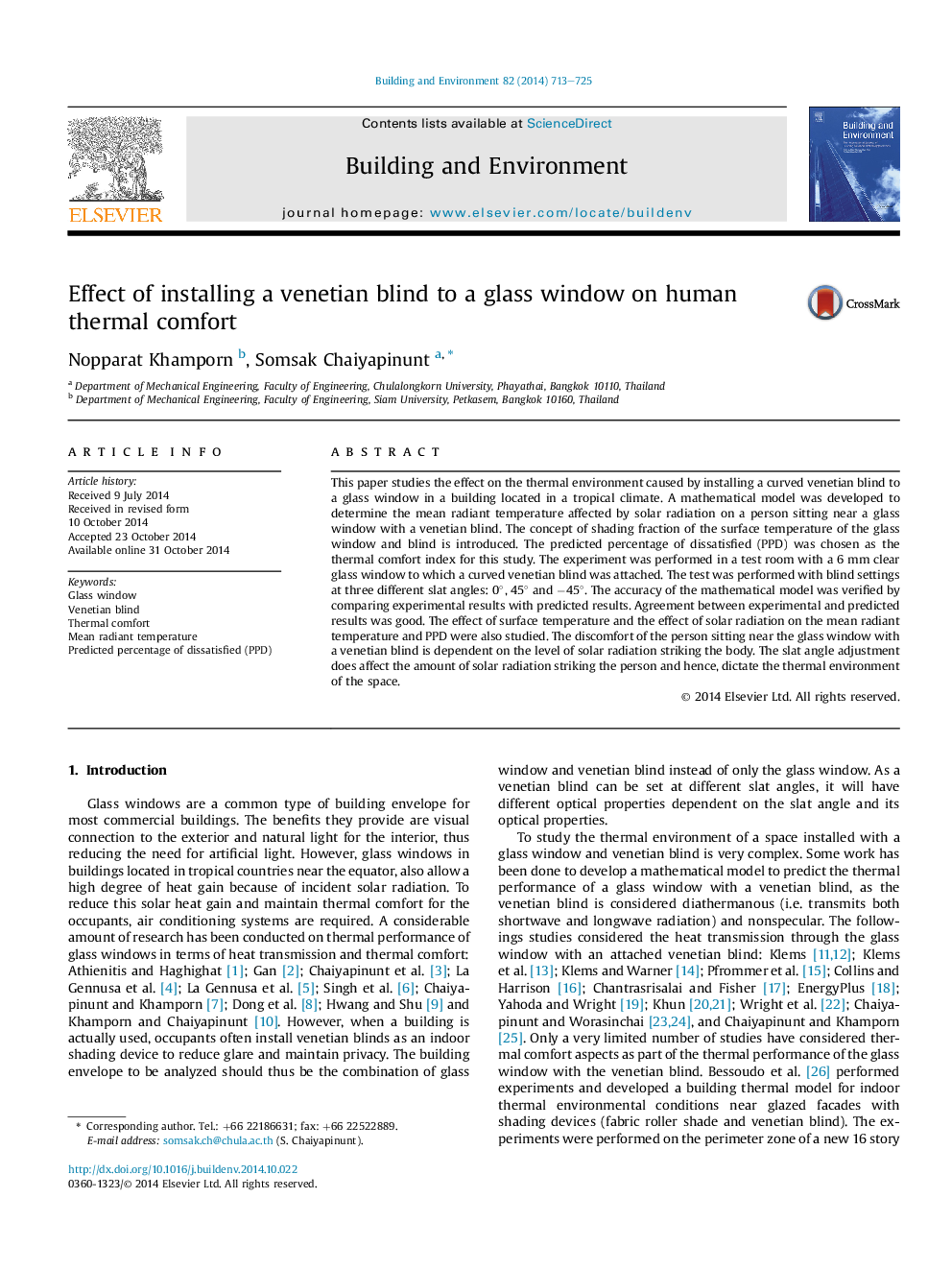| Article ID | Journal | Published Year | Pages | File Type |
|---|---|---|---|---|
| 6700447 | Building and Environment | 2014 | 13 Pages |
Abstract
This paper studies the effect on the thermal environment caused by installing a curved venetian blind to a glass window in a building located in a tropical climate. A mathematical model was developed to determine the mean radiant temperature affected by solar radiation on a person sitting near a glass window with a venetian blind. The concept of shading fraction of the surface temperature of the glass window and blind is introduced. The predicted percentage of dissatisfied (PPD) was chosen as the thermal comfort index for this study. The experiment was performed in a test room with a 6 mm clear glass window to which a curved venetian blind was attached. The test was performed with blind settings at three different slat angles: 0°, 45° and â45°. The accuracy of the mathematical model was verified by comparing experimental results with predicted results. Agreement between experimental and predicted results was good. The effect of surface temperature and the effect of solar radiation on the mean radiant temperature and PPD were also studied. The discomfort of the person sitting near the glass window with a venetian blind is dependent on the level of solar radiation striking the body. The slat angle adjustment does affect the amount of solar radiation striking the person and hence, dictate the thermal environment of the space.
Related Topics
Physical Sciences and Engineering
Energy
Renewable Energy, Sustainability and the Environment
Authors
Nopparat Khamporn, Somsak Chaiyapinunt,
